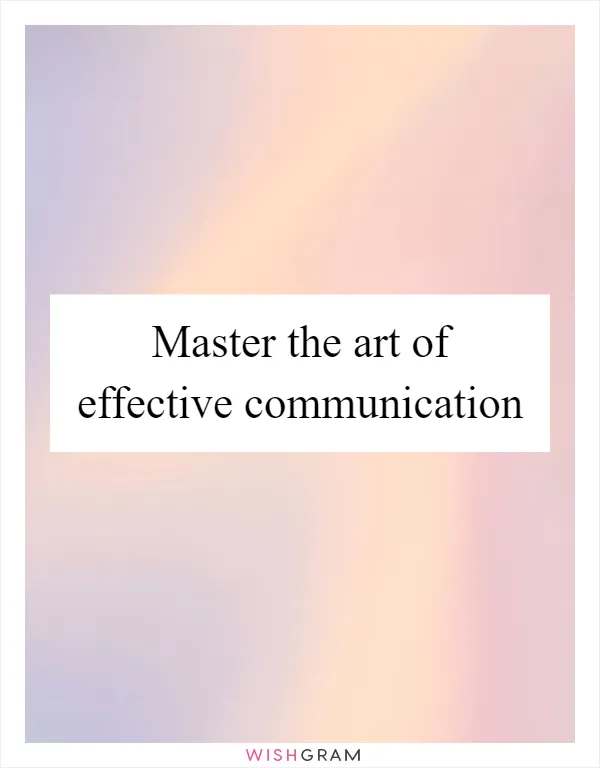Master the art of effective communication
Effective communication is a skill that holds immense value in the realm of self-improvement. It is the key to unlocking doors of opportunity, fostering meaningful relationships, and achieving personal growth. Mastering the art of effective communication requires dedication, practice, and a deep understanding of oneself and others.
To begin with, effective communication starts with self-awareness. Understanding our own thoughts, emotions, and beliefs allows us to express ourselves authentically and confidently. By being aware of our strengths and weaknesses, we can tailor our communication style to suit different situations and individuals. This self-awareness also enables us to actively listen to others, showing empathy and respect for their perspectives.
Furthermore, effective communication involves clear and concise expression. It is important to convey our thoughts and ideas in a manner that is easily understood by others. This requires organizing our thoughts, choosing appropriate words, and structuring our sentences logically. By doing so, we can avoid misunderstandings and ensure that our message is received as intended.
Non-verbal communication is another crucial aspect of effective communication. Our body language, facial expressions, and tone of voice often convey more than our words alone. Being mindful of our non-verbal cues allows us to align our message with our intentions. Maintaining eye contact, using open gestures, and speaking with a confident tone can enhance our communication and build trust with others.
In addition, effective communication involves active listening. It is not just about speaking, but also about understanding and responding to others. Active listening requires giving our full attention to the speaker, without interrupting or judging. By asking clarifying questions and summarizing what we have heard, we can ensure that we have understood the message accurately. This not only strengthens our relationships but also fosters a sense of mutual respect and understanding.
Moreover, effective communication is adaptable to different contexts and individuals. Each person has their own unique communication style, and being able to adapt to these differences is crucial. By being flexible and open-minded, we can bridge gaps in communication and build stronger connections with others. This adaptability also extends to different mediums of communication, such as written, verbal, or digital, allowing us to effectively convey our message in various situations.
Lastly, effective communication requires practice and continuous improvement. It is a skill that can be honed over time through feedback, reflection, and learning from our experiences. Seeking constructive criticism, attending communication workshops, or reading books on the subject can all contribute to our growth as effective communicators. By embracing a growth mindset and being open to learning, we can constantly refine our communication skills and become more effective in our interactions.
